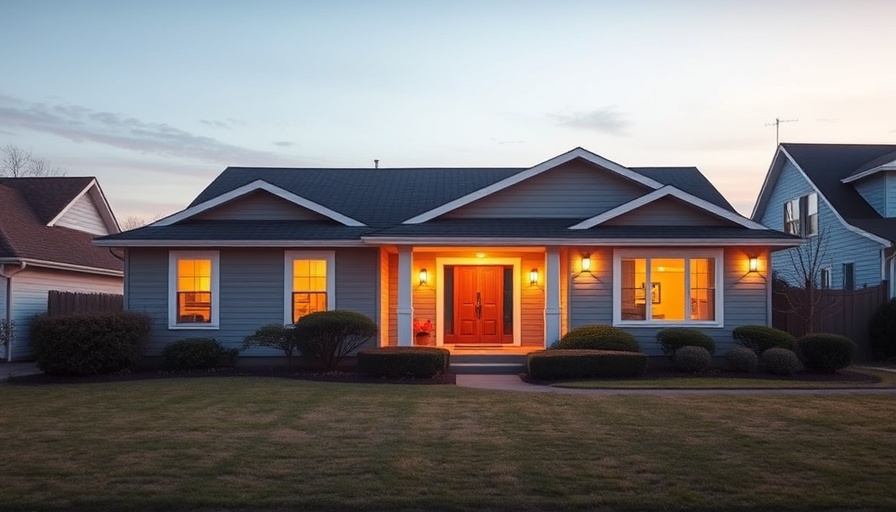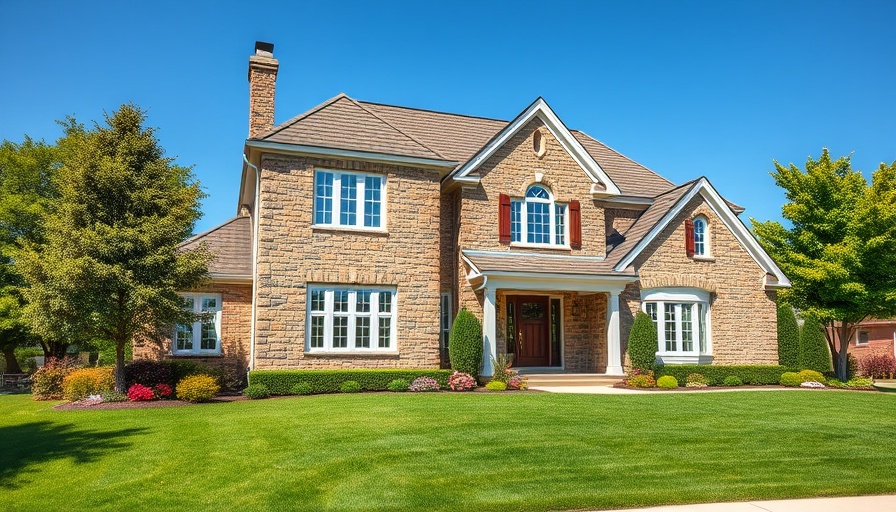
Understanding the Income Needed for a $500k House
Purchasing a $500,000 home can feel like a monumental achievement, but determining whether you can afford it often leads to confusion and frustration. The income required for a $500k mortgage can differ significantly based on your individual financial situation and local market conditions. In this guide, we'll not only explore what it takes to afford your dream home but also provide insights that can help you plan effectively.
The Short Answer
In general terms, most aspiring homeowners will need to earn between $120,000 and $160,000 annually to comfortably afford a $500k house. This estimate is typically grounded on the assumption of a conventional 30-year mortgage with a competitive interest rate and a substantial down payment ranging between 10% and 20%. However, the actual income you might need could vary according to your debt load, credit score, and the property taxes in your local area.
Breaking Down Monthly Costs
To better illustrate the financial responsibility of a $500k home, let’s examine a typical breakdown of monthly costs associated with such a purchase:
- Purchase price: $500,000
- Down payment (20%): $100,000
- Loan amount: $400,000
- Interest rate: 7% (30-year fixed)
With these parameters in mind, your estimated monthly mortgage payment (principal and interest) would be approximately $2,661. If you add in property taxes and homeowners insurance, which can total around $721, your total monthly housing cost would rise to about $3,382. To support this expense, your gross monthly income should ideally hover around $12,000, translating to an annual income of approximately $145,000. If your down payment is lower or the interest rate higher, the required income will inevitably increase.
Key Factors Influencing Home Affordability
Understanding how much house you can afford goes beyond simple calculations based on your salary. Here are crucial factors that influence borrowing potential:
1. Down Payment
The size of your down payment has a direct impact on your loan amount and monthly payments. Larger down payments can lower your borrowing amount significantly, which may reduce monthly costs and overall interest paid over the life of the loan. Typical down payment percentages range from 3% to 20%, depending on the type of loan and lender stipulations.
2. Interest Rate
Interest rates fluctuate based on economic conditions and can significantly alter your monthly payments. A lower interest rate decreases the overall cost of the home over time, making it essential to secure the best rate possible, which can also depend on your credit score.
3. Credit Score
Your credit score plays a pivotal role in determining both your eligibility for a mortgage and the interest rate you’ll be offered. Higher scores suggest lower risk to lenders, leading to better lending terms. It's advisable to check your credit report before applying for a mortgage and rectify any discrepancies.
4. Local Property Taxes
Property taxes vary widely depending on location. Some regions have substantially higher rates, which can affect your monthly housing costs. It's prudent to check local tax rates when budgeting for your new home.
5. Existing Debt
Lastly, your existing monthly debts must be taken into account. Lenders generally prefer that your total monthly housing expenses do not exceed 28-31% of your gross monthly income. This could include not only your mortgage payment but also other debt obligations such as student loans or car payments.
Exploring Local Market Conditions
If you're contemplating buying in areas such as Austin, TX or Raleigh, NC, understanding localized market trends is critical. Cities may experience different levels of property demand, impacting home prices and affordability metrics. Keeping an eye on listings through real estate platforms like Redfin, Zillow, or Trulia can provide valuable insights into the homes for sale in your desired neighborhood.
Future Trends and Predictions
As the real estate market continues to evolve, various trends may affect the affordability of homes, particularly for first-time buyers. For instance, rising interest rates or an increase in the cost of living can place additional pressure on potential homeowners. Conversely, advancements in technology and remote work capabilities may prompt individuals to consider properties outside of traditional urban cores, where homes might be more affordable.
Practical Insights for Homebuyers
Here are some actionable steps you can take when you're ready to embark on your home-buying journey:
- Start saving early for a larger down payment.
- Monitor your credit score regularly and improve it if necessary.
- Research and understand the property tax rates in your desired communities.
- Limit unnecessary debt prior to applying for a mortgage.
- Work with a trusted real estate agent who can guide you through the process.
The Emotional Aspect of Buying a Home
Finally, buying a home is not just a financial transaction; it is an emotional experience steeped in personal dreams and aspirations. Consider how you and your family will feel in your new home – the memories you'll make and the community you will join. These intangible elements can often be just as important as the numbers crunch.
In conclusion, understanding the income needed for a $500,000 home is pivotal in your house-hunting journey. Whether you’re planning to hunt for homes with a realtor, searching for apartments for rent, or considering investment properties, being informed will empower you to make better choices. Start your search today to find the property that aligns with your financial picture and lifestyle aspirations.
Assess your readiness to dive into the housing market by gathering your financial documents and arming yourself with knowledge on local listings; from new construction homes to foreclosure opportunities, they are out there waiting to be discovered!
 Add Row
Add Row  Add
Add 



Write A Comment